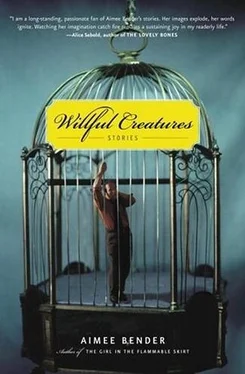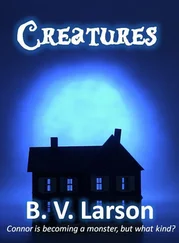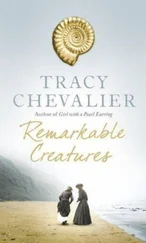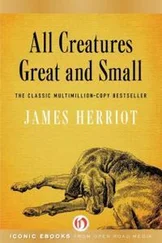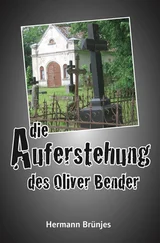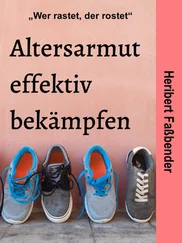Aimee Bender - Willful Creatures
Здесь есть возможность читать онлайн «Aimee Bender - Willful Creatures» весь текст электронной книги совершенно бесплатно (целиком полную версию без сокращений). В некоторых случаях можно слушать аудио, скачать через торрент в формате fb2 и присутствует краткое содержание. Год выпуска: 2006, Издательство: Anchor Books, Жанр: Современная проза, на английском языке. Описание произведения, (предисловие) а так же отзывы посетителей доступны на портале библиотеки ЛибКат.
- Название:Willful Creatures
- Автор:
- Издательство:Anchor Books
- Жанр:
- Год:2006
- ISBN:нет данных
- Рейтинг книги:4 / 5. Голосов: 1
-
Избранное:Добавить в избранное
- Отзывы:
-
Ваша оценка:
- 80
- 1
- 2
- 3
- 4
- 5
Willful Creatures: краткое содержание, описание и аннотация
Предлагаем к чтению аннотацию, описание, краткое содержание или предисловие (зависит от того, что написал сам автор книги «Willful Creatures»). Если вы не нашли необходимую информацию о книге — напишите в комментариях, мы постараемся отыскать её.
Willful Creatures — читать онлайн бесплатно полную книгу (весь текст) целиком
Ниже представлен текст книги, разбитый по страницам. Система сохранения места последней прочитанной страницы, позволяет с удобством читать онлайн бесплатно книгу «Willful Creatures», без необходимости каждый раз заново искать на чём Вы остановились. Поставьте закладку, и сможете в любой момент перейти на страницу, на которой закончили чтение.
Интервал:
Закладка:
When she came home at five, her ironhead was dead. He was in front of the TV with his ironhead turned toward the sofa, away from the screen, and when he didn’t respond to her inquiries, she went to check on him, listening for his breath in its small steamy gasps, and she heard nothing coming out of him at all. She was so used to the slow steady hushed sound of his breathing that it was only the abrupt silence of him that convinced her he wasn’t there anymore. She crumpled by his side and held him close and cried and cried and when the little girls came home from soccer practice they didn’t know what to do and couldn’t stand to watch their mother crying like that and so they got mad at each other and screamed and kicked on the front lawn. The mother held her little ironhead close and his body felt cool and distant. She stroked down the plastic handle and when her husband came home she nearly fell against him.
The doctor who came by that night to state the cause of death said that the ironhead had died of utter exhaustion, that it had nothing to do with the chili or the journey across the field or the iron in boxes or the laughing policemen. He weighed the iron and said that the weight of it was completely out of proportion with the rest of the body, and that it was frankly incredible that the boy had lived at all, carrying a head like that around all day. “This is rock-solid iron, and you can imagine-” he declared. The mother stood still as a stone; the father nodded slowly. The doctor didn’t finish his sentence, and bowed his head in the face of their grief. The pumpkinhead family buried the ironhead in the cemetery which was only a few blocks away, and at the funeral, children from the school filled buckets with dirt and then submerged them in dirt. A few well-meaning but thoughtless types brought irons to put on his grave, but the mother, her body taut and loosening at the same time, flung them as far away as she could, flying irons, until they crashed among the trees, shading boat-shaped imprints into the earth. One thrifty mourner secretly collected them and took them with her and sold them for half price back to the appliance shop where they crowded the aisle, chins up. The pumpkinhead family sat together at the cemetery and the mother kept uncovering dishes of warm food so she could release steam on his grave, because she wanted to give him voice, to give him breath again.
For many weeks, all they ate were the casseroles brought by the neighbors. When they ran out of those, the mother went into the kitchen, gathered ingredients, and made spaghetti. She was slow and heavied, but she did it, and the family ate together that night: four. While she cut the mushrooms, she cried more than she had at the grave, the most so far, because she found the saddest thing of all to be the simple truth of her capacity to move on.
Thirty years later when the girls were having their own children, they had mostly pumpkinheads, but the recessive gene did rear its head once more and the second daughter’s third child emerged with the head of a teapot. This seemed less difficult to live with than a pointy heavy head of iron and the teapothead child did just fine, made many friends, and slept without trouble. She breathed steam just like her uncle had, and so they sometimes called her ironhead as a pet name even though it didn’t fit. She was very good at soccer. The mother and father pumpkinhead still visited the cemetery regularly and sat there with their backs against the dates of their child’s birth and death and the mother said, “I can feel my head softening,” and the father said, “My shoulders are shrinking and my knuckles are growing,” and they sat with their heads orange globes against the gray stone and green grass and after a few hours walked home together.
Part Three
Job’s Jobs
God put a gun to the writer’s head.
I’m making a rule, said God. You can’t write another word or I’ll shoot you. Agreed? God had an East Coast accent, tough like a mobster, but his lined face was frail and ethereal.
The writer agreed. He had a wife and family. He was sad because he loved words as much as he loved people, because words were the way he said what he wanted about people, but this was God and God was the real deal, and he didn’t want to spend too much time dwelling on it. So he packed up his typewriter and paper and tucked them in the hall closet, and within two days, to comfort his loss, went to the art supply store and bought oil paints and a canvas and a palette and set up in the garage among the old clothes and broken appliances. He’d always liked painting. He thought he had a good sense of color. He painted every morning for hours, until he started to paint something real.
He was working on his eighteenth canvas, blues and browns in sharp rows blurring in the middle, making a confrontation with black, when God entered his studio, this time holding a dagger.
Cut the painting too, said God. No words, no images. Or — He made a slicing motion near his stringy throat.
Why? cried the painter, already missing the sharp smell of the oils, how the colors mixed to become brand new again, an exotic blush of yellow, a bluish gray, a new way to show trees, with white! He missed the slow time he took washing his hands with turpentine, the way his wife praised the new rugged scent of him.
God lifted the dagger to the lightbulb of the garage and it glinted, unpolished silver, speckled with brown. Do not question God, said God.
So the painter packed away his paints, inside that hall closet, next to the typewriter and reams of white paper. He felt a deep pang, but within a week signed up for a drama class, held in a church where the ceilings were high, the air cool, and every scene took on particular gravity with those stained-glass windows acting as set. He played a few roles, and he wasn’t very good at first but was enjoying it anyway, shy man that he was, liking the way he would feel his feeling and then use it and look around at the other people in the class, faces split into red-and-yellow triangles from the windows, and see they were feeling the same feeling with him, how contagious it all was. He needed a lot of reassurance as an actor but he was starting to understand its ultimate camaraderie and loneliness, the connection which is tight as laces then broken quick as the curtain’s fall.
So of course one afternoon, walking out of the church, spanking a new script against his knee, he found God in the backseat of his car, gripping a bayonnet.
No more, God said. In my house no less, said God.
The actor started to cry. I love acting, he said. I’m just getting it right, he said. My wife thinks I’m coming out of my shell.
God shook his head.
Mime? the man pleaded.
God poked the actor’s side with the sweet triangular tip of the bayonnet.
The actor sat in the car, gripping the steering wheel, already missing the applause, the sight of the woman in the front row with tears in her eyes that were from the same pool of tears he’d visited to do the scene, the entire town fetching water from the same well.
The actor was depressed for a while which his wife didn’t like much, but finally he slogged himself out of it and took up cooking. He studied the basics in the cookbook and told himself that patience was a virtue and would be put to good use here. Sure enough, in three months, he’d made his first soup from scratch-potato leek nutmeg-and it was very good. His wife loved it. You’re amazing, she told him in bed, his hands smelling of chicken guts; I married the most amazingly artistic man, she said.
He kissed her. He’d made a dessert too and brought it into bed-a chocolate torte with peanut butter frosting. He kissed her again. After two bites the torte fell, unnoticed, to the floor.
Читать дальшеИнтервал:
Закладка:
Похожие книги на «Willful Creatures»
Представляем Вашему вниманию похожие книги на «Willful Creatures» списком для выбора. Мы отобрали схожую по названию и смыслу литературу в надежде предоставить читателям больше вариантов отыскать новые, интересные, ещё непрочитанные произведения.
Обсуждение, отзывы о книге «Willful Creatures» и просто собственные мнения читателей. Оставьте ваши комментарии, напишите, что Вы думаете о произведении, его смысле или главных героях. Укажите что конкретно понравилось, а что нет, и почему Вы так считаете.
